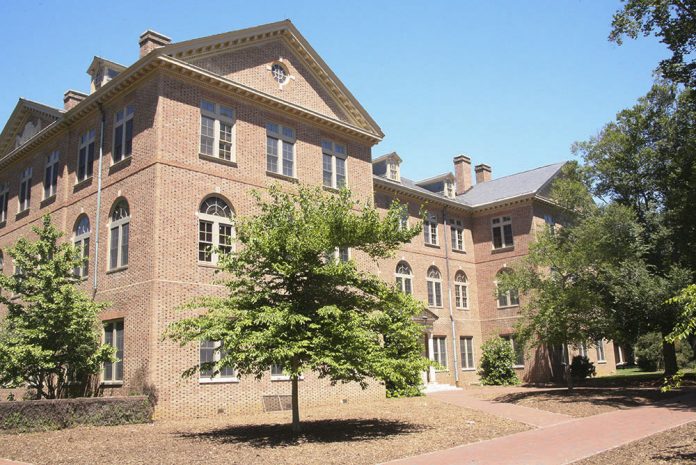Senior Research Botanist and Curator of Botany at the Smithsonian’s National Museum of Natural History John Kress visited the College of William and Mary Thursday, Oct. 24 to give a talk before students and professors entitled “Coevolution of the Anthropocene: The Complexity of Nature in a Rapidly Changing World.”
Kress has spent decades studying plants and animals, receiving his bachelor’s from Harvard University in 1975 and his Ph.D. from Duke University in 1981, specializing in tropical biology and ethnobotany.
Kress has spent much of his time studying hummingbirds and their interaction with the Heliconiaceae family of flowering plants in tropical areas such as Costa Rica and throughout the broader Caribbean region.
In his talk, Kress described how the Anthropocene — meaning age of man — is a proposed term for the historical period in the history of the Earth in which we live, which is increasingly defined by the impact of the human species on the planet’s environment. Kress explained that scientists disagree over when the Anthropocene began.
“Some say the Anthropocene really started with the first extinction of animals caused by humans, others say, no, it was really 10 to 11 thousand years ago when agriculture first began, others talk about the great Columbian exchange where Columbus and the exploration of the Earth began to exchange animals, plants and diseases from one continent to the next,” Kress said. “Most believe the Industrial Revolution is the beginning of the major impact, when fossil fuels were first used. … there are some geologists who say the best marker is when the first atomic bomb was exploded on July 10, 1945.”
A key element of Kress’ presentation was his argument that people should appreciate what he terms the complexity of life, as well as the diversity of life.
Kress also cautioned that evaluating the diversity of life is not simply looking at the number of species in a country or habitat and making conjectures from those factors alone.
“I’d like to propose that there are other things that we need to think about when we’re discussing the diversity of life on planet Earth,” Kress said.
“I’d like to propose that there are other things that we need to think about when we’re discussing the diversity of life on planet Earth,” Kress said. “One is species traits, so the characteristics that species possess, that are different between every species, … but almost more importantly are species interactions. There are no species on the planet, including our own, that don’t interact with other species. Species interactions, I actually think, are more important in understanding what I would like to call the complexity of life on the planet, not just the diversity.”
Kress concluded his talk by describing the amount of species in danger of extinction and the vast number of animal deaths and disappearances which can be attributed to human activity.
“It was reported that in North America alone three billion birds have gone missing over the last 50 years,” Kress said. “They estimated there were about ten billion individual birds in North America in 1970. There are now about seven billion. Individuals, populations and species are decreasing, and this is one of the major impacts of the Anthropocene on the planet.”
Abigail Buffington, an environmental archaeologist, said she was impressed by Kress’ scholarship.
“I was fascinated by the research that the scholar has done, really interesting findings, in terms of coevolution,” Buffington said. “I thought he had a really compelling framework that he had devised for the research.”
Genevieve Kennedy ’23 attended the talk to hear Kress speak as well as to see and meet the other visitors from the Smithsonian.
Kennedy said that she enjoyed Kress’s lecture and found its content thought-provoking.
“I really enjoyed learning … about different evolutionary features of different hummingbirds in the Caribbean and stuff like that, but I also thought it was cool to hear about the Anthropocene and the effects it has on the planet, but also very sad at the same time,” Kennedy said.
“I really enjoyed learning … about different evolutionary features of different hummingbirds in the Caribbean and stuff like that, but I also thought it was cool to hear about the Anthropocene and the effects it has on the planet, but also very sad at the same time,” Kennedy said.
Ireland Degges ’22 said she attended Kress’s talk because she is interested in environmental science.
“I liked when he talked about the Anthropocene and how that has impacted the environment,” Degges said. “I think the way humans have impacted the environment is sad but really interesting to study, and I think that learning about it will hopefully improve our environmental policies.”

